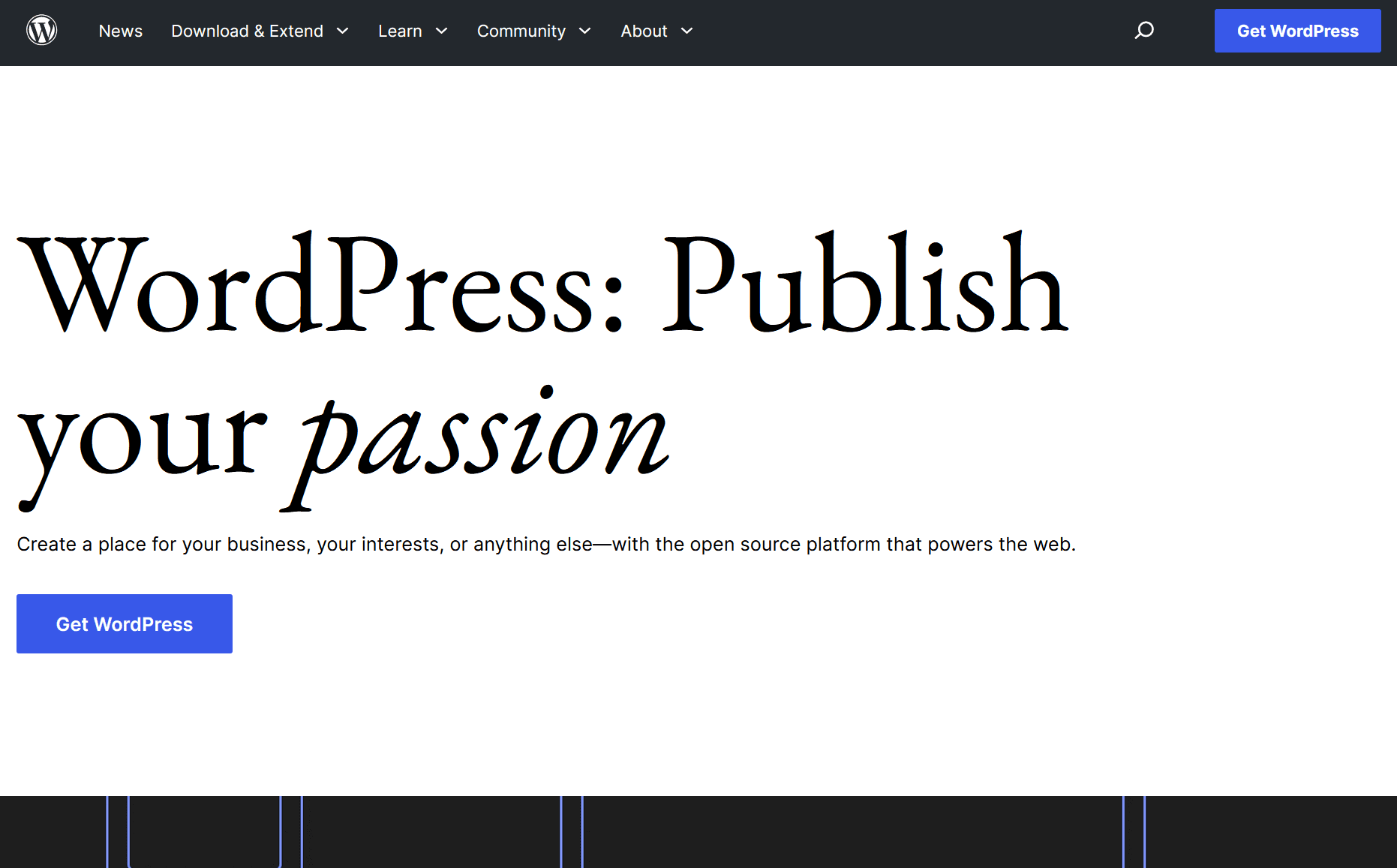More than 400 million people see over 20 billion web pages every month. 180 million of those consist of blog posts, with many published on open source blogging platforms. Open source software (OSS) is made to be modified and used freely by anyone who has a need for it, including bloggers. These programs, platforms, and apps allow developers to take advantage of freely available resources and software, access its code, and modify the software to suit their needs. This makes open source perfect for free blogging platforms – easy, accessible, and – mostly – free.
In this article, we look at the top open source blogging platforms available today, which bloggers are taking advantage of to get their content out there without having to pay hefty subscription fees or be confined to the boundaries set by closed-source sites.
Open Source Software vs. Closed Source Software

Why Use Open Source Blogging Platforms?
If blogging platforms can use both OSS and CSS code, then why aren’t all platforms’ code closed to the internet and charging people? Depending on their models and needs, some platforms are created to make money, while others simply want to give people a place to create blog content. As a blogger, you’ll need to understand the differences between the two before making a decision.
- Price – OSS is almost always free; CSS is usually not.
- Source Codes – OSS grants anyone access to the code by publishing it and sharing it online. CSS keeps it under wraps so that nobody can copy it or release competing versions of the software created from the code.
- Support – Paying CSS users often enjoy more support from developers than OSS. However, OSS bugs and issues are usually fixed quickly when something goes wrong, while CSS problems can take some time for the developers to get around to them.
- Security – OSS code is fully transparent, meaning everyone can access the code to test it and identify weaknesses. CSS, on the other hand, can be vulnerable if not checked properly by the vendor, though CSS security features for blogging platforms are pretty robust.
Licensing
Open source blogging platforms carry licenses containing terms and conditions that users must agree to before using the software that supports the blogging platform.
- Copyleft licenses like the popular GNU General Public License (GNU GPL) mean that the same terms and conditions will apply to all modified versions of the software. This is great for free blogging platforms that want to allow their code to be used by anyone and still ensure that any modified versions are also released as open source products.
- Permissive licenses include the MIT license, which allows developers to use the software and adjust it freely to suit their needs without having to re-license modified versions. Platforms can then change or add to the original code and publish or sell it without any restrictions.
The Best Open Source Blogging Platforms

We’ve collected a list of the best open source blogging platforms for bloggers. There are countless platforms online, each with different features, functions, pros, and cons. Some are big players, dominating the blogging market, while others are designed for niche market bloggers.
1. WordPress.org
Let’s get the most obvious one out of the way first – WordPress. WordPress is a self-hosted, JavaScript-based, open source content management system (CMS) where you can build and host websites. The platform’s blogging functionality is designed for ease of use and boasts various plugins and an extensive range of templates. You won’t need to buy a domain name or pay for 3rd-party hosting – just sign up, and you’re good to go.
There are two main versions – WordPress.com vs. WordPress.org.
- WordPress.com – allows you to create your blog and have it hosted online. Perfect for beginner bloggers or those looking to create a simple blog with limited customization or monetization requirements.
- WordPress.org – is a resource where you can download the open source WordPress software, giving you more customization and better opportunities to grow your blog and to access the platform’s code for extensions, plugins, and integrations.
Benefits of using WordPress:
- Great for personal or business blogs
- Massively popular – over a third of all websites on the internet are WordPress-hosted
- Extremely easy to understand
2. Jekyll
Jekyll is great for experienced coders and bloggers who know a little about the nuts and bolts behind blogging platforms. Jekyll powers GitHub pages, allowing users to host their blog there for free. Jekyll’s ability to create sites from markup files applied to their templates to generate static HTML files makes the platform great for flexibility, especially for those with high-traffic blog sites.
Benefits of using Jekyll:
- High flexibility and GitHub integration
- Lightning fast load speeds
- Stability and security are high on the platform
3. Ghost
If you’re looking for a popular open source developer blog platform focused on content, then Ghost is the best option around. The relatively new non-profit uses a headless Node.js CMS and is ideal for writers and digital publishing content creators looking to monetize and build a blogging content business. The platform offers paid plans which boast added features not often found on open source blogging platforms.
Benefits of using Ghost:
- Very clean, simple interface
- Gives users complete design and customization control
- Offers newsletter publishing features
4. Pelican
Pelican is a static site blog option written in Python, making it the go-to for the language’s loyal users. The platform supports reStructuredText, Markdown, or AsciiDoc markup and the Jinja2 theming functionality offers minimalist options which are simple and clean. An engaged community is constantly updating, fixing, and enriching the free blogging platform.
Benefits of using Pelican:
- Can be hosted on GitHub
- Supports multiple languages
- Perfect for Python users
5. Bolt
Bolt takes things to the next level by offering its users a full-suite CMS blogging function. Users can debug and trace code issues themselves, while the platform’s Twig templating makes it a potent CMS choice for bloggers needing an open source free blogging platform tool that goes the extra mile.
Benefits of using Bolt
- Great backend interface
- Multiple relational database management system options: MySQL, SQLite, or PostgreSQL
- Nice selection of templates
6. Poet
The Node.js blogging platform is best for those looking for flexibility in choosing which markup language they’re most comfortable writing in. Poet gets you up and blogging in no time by generating render templates and routing customizations in a second.
Benefits of using Poet:
- Multiple markup languages, including Markdown and Jade
- Speedy startup time and simple blogging interface
- Lightweight blogging resource powered by Node.js
7. Nikola
Another Python-supported, static site and blog generator that is very useful for bloggers looking for a platform that accepts markup files in multiple input formats. Nikola offers users a balanced blogging interface that rides the advantages of static sites while ensuring fantastic speeds.
Benefits of using Nikola:
- Fast speeds owing to the platform prioritizing page rebuilds
- Blogging features include comments, tags and RSS feeds
- Python-based plugins are easy
8. Joomla
Joomla is up there with the most popular open source developer blogging sites available. The high degree of flexibility, support, and optimization features make Joomla a great WordPress or Ghost alternative. Whether looking to scale your blog or to use the CMS’s extensive template offerings to get started as quickly as possible, Joomla is an excellent all-around option.
Benefits of using Joomla:
- Long list of features, including built-in caching and varied extensions
- Stunning customization options
- Great for monetizing your blog
9. Toto
The toto blog-engine isn’t a platform per se, but it was designed as a minimalist blog engine that runs exclusively on Git and gives users full access and control over their content, much like they have over their code. With .txt stored article content and ERB templating, toto is a small, potent resource for those in the know. A small and high-power free blogging platform for ‘hackers’.
Benefits of using toto:
- Minimalist interface is perfect for bloggers who want a clean interaction
- Built for Git – free version control
- No database or ORM, using only plain text files
10. Drupal
Drupal impresses with its full tools and feature set, making it the perfect open source blogging platform for anyone looking for a little more in their blogging endeavors. The platform’s multifaceted API architecture allows for various platform integrations, while added security and performance capabilities mean Drupal is ideal for high-traffic developer blog sites.
Benefits of using Drupal:
- Does well in supporting complex blogs featuring extensive, long-form content
- Expansive customizations and integrations allow improved UX
- High coding and community standards for added security
11. BlogEngine.Net
The .net blogging resource is orientated around simplicity and extendibility without compromising on blogger features and usability. BlogEngine is highly customizable, offering users a range of themes and extensions to give their blog an edge while using SEO tools to ensure top-shelf optimization.
Benefits of using BlogEngine.NET:
- High customization
- Large features set
- Runs as its own website with no database needed
12. WriteFreely
WriteFreely is not a CMS, but rather a writing platform designed for writers looking for a minimalist blogging platform to write federated blog content. Started by Write.as, the self-hosted free blogging platform is great for users who use MarkDown formatting, work with Go language, and want a simplified publishing process.
Benefits of using WriteFreely:
- Lightweight engine which is easy to install
- Customizable
- ActivityPub integration allows for more flexibility
13. Backdrop CMS
The small and medium business-focused CMS has emerged from Drupal’s open source code base but has evolved enough to offer bloggers a different product from its progenitor software. Backdrop is a helpful tool for bloggers who need to get their business’s blog content published quickly and looking great, using the CMS’s professional website themes.
Benefits of using Backdrop CMS:
- Extendibility to many different modules
- Great community, boasting high engagement
- Nice selection of themes
14. Hexo
With lightning-quick load speeds and a simple interface, Hexo’s Node.js engine lets users create developer blog site content in the programming language of their choice before generating static blog content that looks good and works well. Bloggers can save time by choosing from a vast themes and plugins library, while one-click deployment to numerous platforms like GitHub Pages or Heroku means easy blogging without any hassle.
Benefits of using Hexo:
- GitHub-flavored Markdown support
- A long list of APIs offering extensive extendibility
- Impressive generating speeds, even for hundreds of files
15. Anchor CMS
For a lightweight CMS (around 200KB) that boasts an elegant interface and Markdown syntax, Anchor CMS is the answer. The blogging functionality allows users to take a different tack in their creative process – art-directed blogging. Get creative and use the platform’s unique art-like style to keep things exciting.
Benefits of using Anchor CMS:
- Simple interface
- Elegant layout and design
- Lightweight and mobile
Conclusion
Open source blogging platforms are valuable resources that allow you to contribute to projects, help develop new forks and present an opportunity to put your name on something with great potential. They provide developers a degree of freedom and flexibility featured in many of the (mostly) free-to-use blogging resources and tools that continue to drive innovation and development for open source blogging platforms.
While many OSS developer blog sites and platforms lack the features and extras of their CSS counterparts, but they’re the perfect place for bloggers to go when searching for simple, easy-to-learn and use blogging spaces that offer everything you need without worrying about all those unnecessary bells and whistles.



















